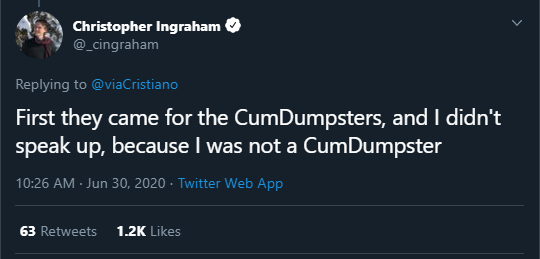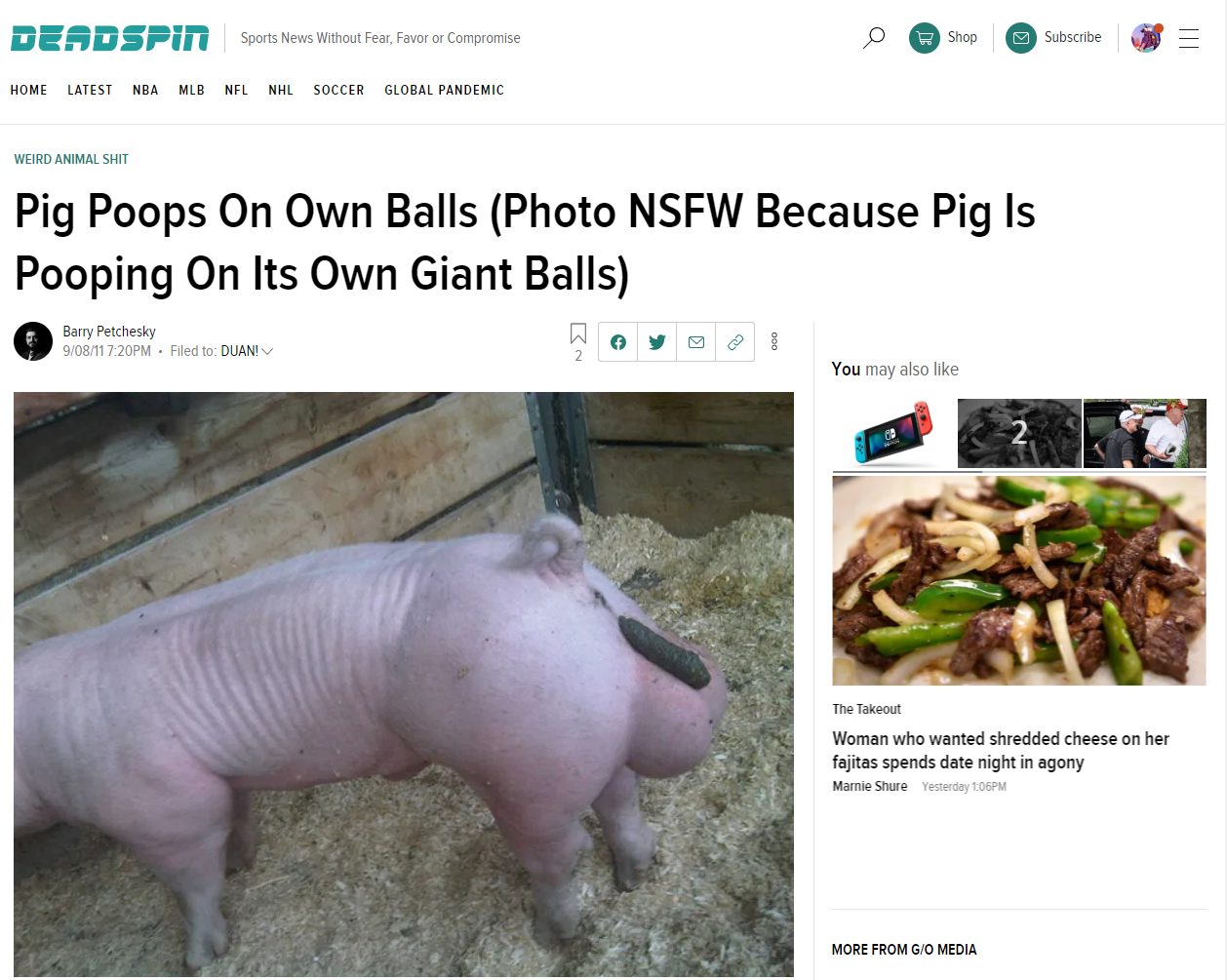A right-wing social media app that’s billed itself as a “free speech” alternative to Twitter is quickly proving itself to be even more restrictive than the alternative apps its users routinely accuse of censorship.
Parler, which reportedly gained a half-million new users this month, banned a slew of people over the weekend, prompting CEO John Matze to clarify that a “few basic rules” will be enforced across the platform. Incidentally, four out of the five items listed by Matza, while prohibited on Parler, are more or less allowed on Twitter. These include pornographic images, usernames containing “obscene” words, and repeatedly responding to people “with unrelated comments like ‘Fuck you’ in every comment.”
“Your Username cannot be obscene like ‘CumDumpster,’” Matze wrote, adding that telling people “Fuck you,” was “stupid.” “It’s pointless, Grow up,” he said. Matze also said that photos of poop “WILL NOT BE TOLERATED.”

Matze’s rules were quickly ridiculed on Twitter, which does not prohibit the use of swear words, such as “fuck,” “shit,” “bitch,” “cocksucker,” or “arse.” Twitter also has no rules against consensually produced adult content, e.g., dicks or tits.
Many users seemed convinced Matze’s ban on pictures of “faecal matter” was actually a reference to pigpoopballs, a meme of a pig who poops on his own balls, the subtext of which seems pretty obvious.

Parler claims its content moderation policies are based on the positions of “the FCC and Supreme Court of the United States which enables free expression without violence and a lack of censorship.” Of course, the FCC, or Federal Communications Commission, has literally nothing to do with the regulation of internet content as its sole purpose is moderating public airwaves. Its rules don’t even extend to cable television. The FCC’s only involvement insofar as the internet is concerned is how internet service is provided; what is provided is none of its business.
Matze’s remarks about Parler’s regulations being in line with “Supreme Court precedents, the FCC, and the First Amendment,” are nonsensical. Neither the FCC nor the Supreme Court nor the U.S. Constitution prohibit a website owner from blocking, altering, or deleting anything on the website they own. Quite the opposite. A law saying website owners can’t control what gets published on their platforms would be a brazen violation of their rights.
In the end, Matze’s own rules are actually more restrictive than those of the FCC, which does allow “obscene, indecent, and profane,” content after 10 p.m. — the time of night the government thinks children go to sleep.
The Supreme Court has never issued a ruling banning bad language words on the internet, nor images of pigs pooping on their own balls, which is hilarious no matter how many times you say it. (For the record, not everyone banned from Parler admits to breaking any of its rules. Writer Thor Benson was banned for creating a clearly labelled parody account of a right-wing publication.)
Parler has been around for about two years now, but the recent rush to join the platform was instigated largely by conservative politicians who’ve accused Twitter, inaccurately, of “censoring,” among others, President Trump. The truth is that Trump has 82 million followers and that Twitter has gone out of its way to protect his account, creating special carve outs to its own rules that apply basically only to him so he can openly violate the terms of service all other users must abide.
During a recent interview, Matze told CNBC: “If you can say it on the street of New York, you can say it on Parler.” But unlike on Parler, you can yell “Fuck you” at people on the streets of New York without fear of getting banished from the city. Just ask literally anyone who’s ever been there.
As has already been pointed out by TechDirt’s Mike Masnick, Matze has a right to run his platform however he chooses. If he doesn’t want pigpoopballs, then he can ban pigpoopballs. If he doesn’t want CumDumpster, he can ban CumDumpster. But the same is true of Twitter and its decision to label blatantly false tweets by Trump, whose otherwise unregulated presence on the platform absolutely impacts Twitter as a company — particularly when he knowingly uses that platform to direct harassment toward others and to spread terrible medical advise or lies about how people vote.
As Masnick noted, Parler is not the first site to promote itself as the last bastion of free expression on the web. Promises to “never moderate” are always broken, because, in addition to legal requirements, these free-speech absolutists inevitably realise that it’s basically impossible to have an intelligent conversation or hold a debate on the internet without at least some boundaries. Matze, 27, isn’t old enough to remember the internet in its infancy, but most, if not all, of the earliest major forums were under the control of appointed moderators. While sometimes dicks, they enforced rules that most people begrudgingly followed because they didn’t want entire threads turning into giant puddles of shit.
This was made necessary because of one inconvenient truth universally recognised as absolute: Everyone on the internet is an arsehole.
